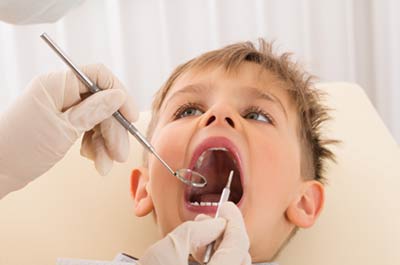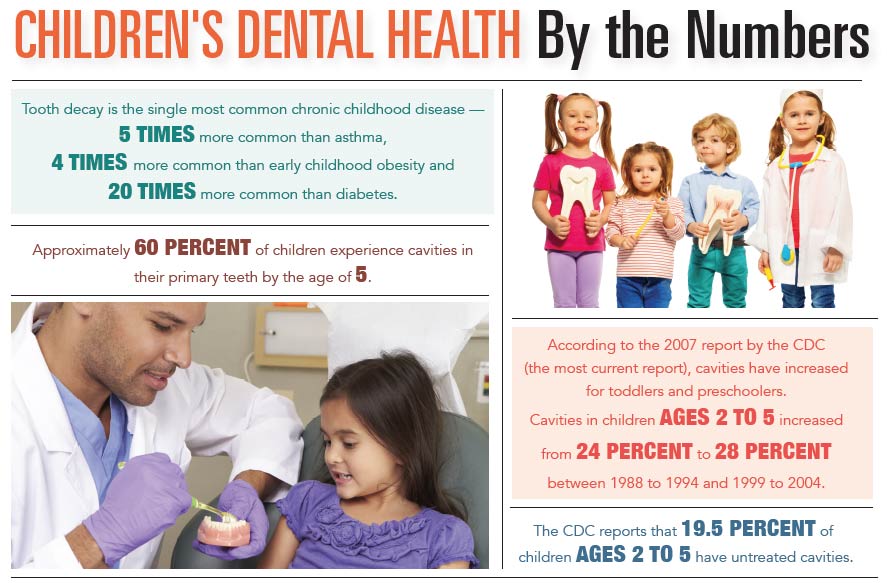Everyone knows that children should brush their teeth daily and see a dentist every six months to make sure their teeth are in tiptop shape. But there’s more to keeping a child’s teeth healthy now and when they get older.
Dental decay is the most common chronic disease of childhood, and it’s generally preventable. That’s why raising awareness and promoting the benefits of good oral health to children, their caretakers and teachers is the focus of National Children’s Dental Health Month in February.
When it comes to dental health, the sooner you can get your little one in to see a dentist, the better. Approximately 60 percent of children experience cavities in their primary teeth by the age of 5.

“It is important to start taking care of teeth as a toddler,” said Dr. Dorothy Baker, a pediatric dentist at Summerville Pediatric Dentistry & Orthodontics. “Many people are surprised to learn their baby’s teeth are at risk for decay.”
Dr. Baker suggested that babies should have their first appointment with a dentist before their first birthday or when their first eight teeth, four on the top and four on the bottom, come in so that any potential problems can be diagnosed and treated.
After that initial trip to the dentist, children should return every six months. While it might be tempting to put it off when life gets busy, letting dental visits lapse could impact a child’s overall health. It’s not just their pearly whites that are at stake, but so much more.
Children with healthy teeth often are able to chew their food better and ingest more nutrients. And experts say that healthy teeth also are helpful for normal speech development – not to mention things that people rarely equate to dental health such as higher self-esteem.
Of course, regular dental visits are just a part of the equation. Teaching kids to take proper care of their teeth at home can instill in them the importance of responsibility, emphasize how critical it is to care for their health as a whole and help them establish healthy habits that will stay with them long after childhood.
Getting children on board with oral hygiene isn’t always easy to do, especially if your child isn’t so keen on brushing and flossing. Children, like adults, should brush at least twice and floss once daily. In order to get little ones into the habit — and help them stay in the habit – Dr. Baker said it’s important to make it fun.
“A sticker chart is a great way to motivate brushing,” she suggested.
Using positive reinforcement so it becomes something your child wants to do, as opposed to another chore, will make the task easier and more enjoyable for everyone.
Need more ideas on how to make caring for little teeth fun? As part of National Children’s Dental Health Month, the American Dental Association created free activity sheets, downloads and other resources on its website. Visit www.ada.org/en/public-programs/national-childrens-dental-health-month to learn more.
Don’t forget that even if you’re doing everything right by encouraging good dental hygiene, sometimes a child’s diet and lifestyle can make keeping teeth healthy particularly difficult. Letting children have too many sweet treats and sending them to bed with a bottle or sippy cup are two of the major “no-no’s” that Dr. Baker said she sees in her practice.
“Allow sugary drinks and candy to be only for special occasions,” Dr. Baker said. “Don’t allow your child to go to bed with anything to drink but water. Going to bed with juice or milk is a major cause of decay in children.”
The good news is that as long as you make sure your children have a healthy diet and healthy habits, they shouldn’t have any trouble keeping their teeth clean and healthy for a lifetime.








